This week marks several major milestones on all of our podcasts— 400 episodes of the Overthinking It Podcast, 200 Episodes of the Theory For Turntables podcast, and the final episode of the Downton Abbey TV Recap Podcast. To celebrate, we have declared this week Podcast Week on Overthinking It. Come back all week for articles and discussion about our favorite podcasts (including our own shows).
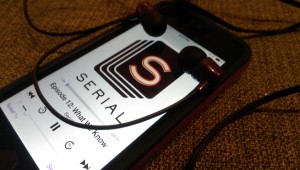 Sheely: Is anyone else still listening to Serial? I still regularly listen to Season 2, and I’m enjoying it a lot. Overall, I think I like it more than I liked Season 1.
Sheely: Is anyone else still listening to Serial? I still regularly listen to Season 2, and I’m enjoying it a lot. Overall, I think I like it more than I liked Season 1.
But the variation in enjoyment is really different between the two seasons. In Season 1, some of the peaks were really high… there were some amazing revelations, puzzles, or cliffhangers, which is what made it initially such a big phenomenon in the pop culture.
But the lows were really low too… I didn’t love all of Sarah Koenig’s navel-gazing about her relationship with Adnan, and I didn’t love that it didn’t really land anywhere satisfying on revealing what actually happened in the case, which was what had piqued everyone’s interest.
Season 2 is much more consistent. There are fewer cliffhangers, because the season is using the serialized storytelling format to cover different angles of a really complex situation, rather than to report week-by-week on an ongoing investigation, with a lot of unknowns coming to light each week.
But Sarah is MUCH less personally involved in the case, in part because she’s not talking to Bowe Bergdahl directly. All of the interviews with Bergdahl come from conversations that Bergdahl had with filmmaker Mark Boal.
The tone is just very different from Season 1. You could even hear it when they did a few mini-updates on Adnan’s recent hearing in the middle of this season-the tone is MUCH looser and much more personal.
But I think I’m an outlier in liking Season 2 better. Enthusiasm has seemed to cool off a lot (I don’t really see any social media coverage or excitement about this season).
What about you guys? Are you still listening? If so, what is your read on this season? How does this season shape your understanding of Serial’s bigger project?
 Stokes: Season 1 was America’s whirlwind spring-break romance with the podcast format. Exciting, overwhelming, potentially life-altering… but not ultimately sustainable.
Stokes: Season 1 was America’s whirlwind spring-break romance with the podcast format. Exciting, overwhelming, potentially life-altering… but not ultimately sustainable.
Season 2 is, like, a good new show from NPR. I’m not gonna say I like it*better*, but it’s still pretty great.
I’ll say this: after S02E01, I didn’t listen for about a month. The episodes just piled up on my phone. I missed the first season’s live-wire energy. But eventually I got over it and started approaching the new thing on its own terms.
What’s missing is the self-reflective aspect: Season 1 was both the story of Adnan and the story of “Sarah-discovering-the-story-of-Adnan.” What you ended up with was a semi-scripted, reality TV version of the hard boiled reporter movie. Okay, calling Sarah Koenig hard boiled is laughable on the face of it, but you get what I mean. The NPR version of that. Boiled in a nice herbal tea.
Sheely: It really was a double-edged sword in terms of my enjoyment, but I agree that the self-reflective element was what made Season 1 really interesting.
Stokes: It was that, and at the same time it was actual investigative journalism. That’s the combo that made it exciting. But it was always gonna be a high-wire act — or not even a high wire act (which is dangerous, but masterable): a game of Russian Roulette. Because in real life, unlike those stories, not every investigation ends with a dramatically satisfying revelation of the truth. MOST don’t.
How many times would America tune in to hear Koenig fail to uncover the smoking gun? I think they very wisely decided not to ever try that again. Now it’s just going to be an in depth report on something each season. Which is also cool — but it’s no longer unique, and it loses the reality TV quality.
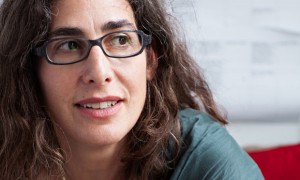 Sheely: I wish Koenig had been more openly reflective about how she was going to be reflective in the podcast. This meta-reflection in Season 1 would have helped to identify that this was part of the method of the show, and may have helped her and her co-producers to lean into that element harder.
Sheely: I wish Koenig had been more openly reflective about how she was going to be reflective in the podcast. This meta-reflection in Season 1 would have helped to identify that this was part of the method of the show, and may have helped her and her co-producers to lean into that element harder.
Some meta-reflection could have even helped in setting expectations for Season 2.
Although I think she does that in a cool way in S2E1 by talking about the children’s book, Zoom. This is a picture book, in which each page zooms out from the image on the previous page, providing new context and changing the meaning of what you had seen before. The farm zooms out to reveal that it is a child’s playset; the child with the playset zooms out to reveal that it is an image on the cover of a magazine, and so on and so on.
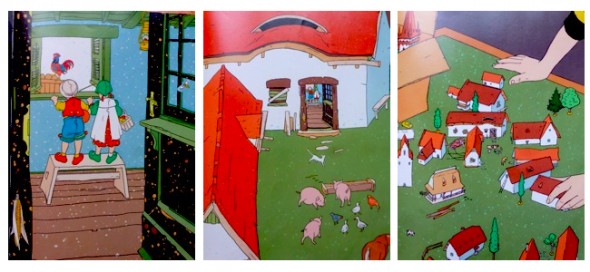
That sets the expectation that the Bergdahl story is going to be one where the nature of the story changes as the level of analysis changes.
But what seems to be happening at this point in the season (particularly in the last two episodes, “Hindsight Parts 1 and 2”) is that she’s now going back to people who she interviewed early on to see how their opinions, attitudes, and beliefs are changing now that they’ve been listening to the podcast. So, she’s capturing a bit of the same kind of process, but with many more people. It will be interesting to see if that happens more as the season continues.
Fenzel: I’ve kept up with it and I’ve been astounded with how much they did to avoid repeating the success of last season. They turned over the bottle, shook out all the lightning, washed it, and refilled it.
Adams: Two big things distinguish the seasons: 1) a clear sense of mission, and 2) a more active role for the podcast as a participant in the story itself. The driving mystery of Season 1 was very clear and very easy to understand: Who killed Hae Min Lee? That’s the only question the listener really cares about and each episode is an opportunity to explore it from a different angle.
That mission is much murkier in Season 2 – there’s not really a clear sense of what question we’re supposed to be asking. The question of “Why did Bowe leave the base?” has lots of different potential answers to that question, not just two clear ones. And even if there were two clear competing theories, it’s not some “fact” in the same sense as a whodunnit.
Fenzel: It isn’t true crime, it isn’t a mystery, it isn’t an unknown story, she doesn’t interview the main person. I think it’s a good show, and on balance it might be better than last season, but I wouldn’t be surprised if it had lost, say, 80% of its audience.
Making a Murderer is the sequel to Serial the audience wanted. That’s the show my brother in law talks about now on group texts to my family.
Also, moving from a weekly schedule to a biweekly schedule mid-season when your tagline is “One story, told week by week” is kind of offensive in how unprofessional it is.
Sheely: ”One story, told whenever I feel like it.”
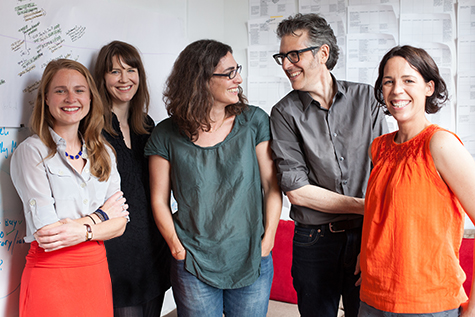
Fenzel: Here’s another question. Is Sarah Koenig primarily a journalist and an interviewer in the context of Serial, or a protagonist?
Stokes: In Season 1, she and Adnan are the protagonists. But in Season 2, there’s no one central figure — it varies week to week. Sometimes it’s Bergdahl and she’s trying to stay in the background.
Even in Season 2, though, she’s more present than your average journalist. She’ll say things like “this was the aspect of the story that I had a hard time with,” or other meta-commentary like that. The lapse to the first person seems unusual for an investigative journalist. There’s no intermediate layer of “impartial journalism face.”
Fenzel: I get the feeling Koenig is trying to distance herself from her level of involvement in last season, but I don’t think she really can in the way she seems to want to. The show reads with her, the storyteller, as a major character and not an impartial journalist. This season has yet to really explore what is at this point an intrinsic aspect of the show.
Stokes: I don’t get the feeling that it’s an intrinsic part of the show this season. If it was, this season wouldn’t feel so different. The Season 1 updates feel like precisely that: a bonus episode of Season 1 that tries to establish the old dynamic. But not a part of Season 2. I listened to them separately, too – I was binging podcasts and I made a point of sticking an episode of another podcast between the Season 1 and Season 2 serial material. Like I subconsciously wanted to avoid crossing the streams.
Fenzel: Have we become our own Sarah Koenigs? Are we watching ourselves make every story about ourselves in a kind of horror? Feeling like we should not make all these stories about ourselves, but realizing when we try not to that it doesn’t work.
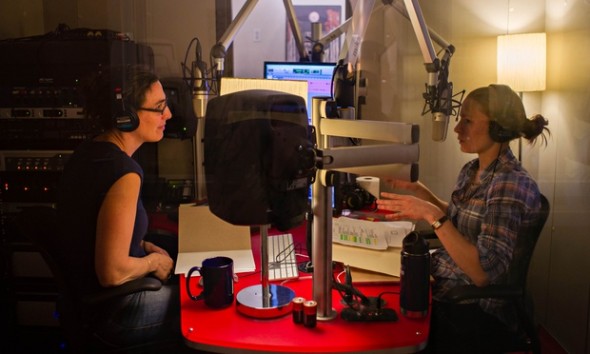
Maybe trying not to make a story about yourself is pointless, because others will see the story in terms of who you are in telling it regardless. A postmodern-savvy audience makes it hard to live the fiction of objectivity.
Sheely: I love this idea of the challenges of living “the fiction of objectivity”. It resonates with a lot of what I’ve been wrestling with while listening to Serial, and is at the heart of what makes it interesting/important.
I remember a lot of the commentary on Season 1 engaging in hand-wringing about whether the podcast was blurring the line between journalism and fictional storytelling. This American Life had already gotten into trouble with the episode on iPhone factories in China that it ended up retracting because it was based on a storytelling show, that was in many parts fictionalized but was presented as research.
I think Pete’s point is really related. On the one hand, much of Serial’s audience is super savvy about post-modernism and the irreducible subjectivity that that entails, but on the other hand, it is hard to let go of the idea that some things -like journalism – should be objective.
This relates to ongoing debates in the social sciences. The academic disciplines vary a lot with respect to how post-modern savvy they are, ranging from anthropology (hyper-savvy) to economics (very much on the objective side). Political Science falls right in the middle, in that it is divided between scholars that are much more comfortable with problematizing objectivity and scholars that are not comfortable with the word “problematizing.”
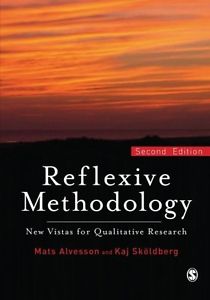 But in the more post-modern savvy disciplines, there are a lot of tools for thinking through this in the course of conducting research and reducing the “horror of subjectivity” that Pete mentioned. The “tool” that I like a lot is “positionality”, which entails reflexively examining the extent to which you are a part of the research and the way in which your identity (and the power embedded in that) shape the story and the way you tell it.
But in the more post-modern savvy disciplines, there are a lot of tools for thinking through this in the course of conducting research and reducing the “horror of subjectivity” that Pete mentioned. The “tool” that I like a lot is “positionality”, which entails reflexively examining the extent to which you are a part of the research and the way in which your identity (and the power embedded in that) shape the story and the way you tell it.
Positionality doesn’t expunge subjectivity, but it acknowledges it as part of the process of research and the larger phenomenon that is being studied.
That said, the gaps between what Koenig does and standards of practice in reflexive qualitative research highlight some of what is frustrating about the show. The show could possibly benefit from a bit more reflexivity (or a bit more structured and rigorous reflection) rather than eliminating it entirely.
Stokes: So what are those gaps?
Adams: One of the things that set Serial apart from most other pieces of journalism is the sense that Koenig is breaking new ground. Most of the time, reporters are gathering information that other people have, and are presenting it to the audience. But in Season 1, there was the strong chance that they would actually become part of the story and find a smoking gun one way or another.
Traditional reporting (and the neutral detachment that goes along with it) is much more sensible in a show that is “reporting” a known story and exploring a nuanced issue. But if you’re trying to potentially prove that a man is falsely imprisoned, and you’re hoping to find definitive evidence either way, that detachment makes a lot less sense – the whole end goal, after all, is to find an answer!
Sheely: As Ben said, Koenig (and some of the other members of her staff) became personally invested in finding the truth about Anand’s case. This opens up one of these tensions/paradoxes that we’ve been talking about- even though they are motivated by a search for truth, their experience and reporting ultimately became the subjective quest for uncovering facts. Koenig did a pretty good job of dealing with this, but was less explicit about this reflexivity than would be the case in a piece of ethnographic research in contemporary qualitative social sciences.
The second gap relates to the tagline of the show “One story. Told week by week.” As we mentioned earlier, this tagline doesn’t really hold in Season 2, because it isn’t coming out week by week anymore and although it is the story of Bowe Bergdahl, it is much more a collection of interconnected stories at different levels of “zoom” that may or may not ultimately come together.
 But even Season 1 was at tension with “One story. Told week by week.” As Ben said, the “one story” in season 1 is “Who killed Hae Min Lee?”, but there is also the second story of “Will Sarah Koenig figure out who killed Hae Min Lee”. (Arguably a third story is the shrimp sale at the Crab Crib that Dana noticed in one episode. It is no mystery that that is a great deal!)
But even Season 1 was at tension with “One story. Told week by week.” As Ben said, the “one story” in season 1 is “Who killed Hae Min Lee?”, but there is also the second story of “Will Sarah Koenig figure out who killed Hae Min Lee”. (Arguably a third story is the shrimp sale at the Crab Crib that Dana noticed in one episode. It is no mystery that that is a great deal!)
These multiple stories don’t always move together week-to-week. There were several weeks in which there were new pieces to the main story, while the story of Koenig’s journey was static, and others where the reverse was the case.
But the interplay between these multiple stories (and between objectivity and subjectivity) seems key towards the artistic project of the show. Both seasons, despite their differences, are focused on explicitly problematizing objectivity. It makes sense that Koenig functions more like a part of the story than an objective outside observer.
So the second gap between the podcast and practice in qualitative research is the gap in what they purport to do (“One story. Told week by week.”) and what they actually do. If I had to rework their description in a way that is more honest and reflective, it would be “The process of reporting and telling big stories. However long it takes” (rather than my earlier, more flip version of the tagline).
While framing the show this way might not have made Serial the breakout podcast hit of 2014, it might have given listeners a better sense of what the show is actually about, and could have prevented some of the loss in interest that has come with Season 2.
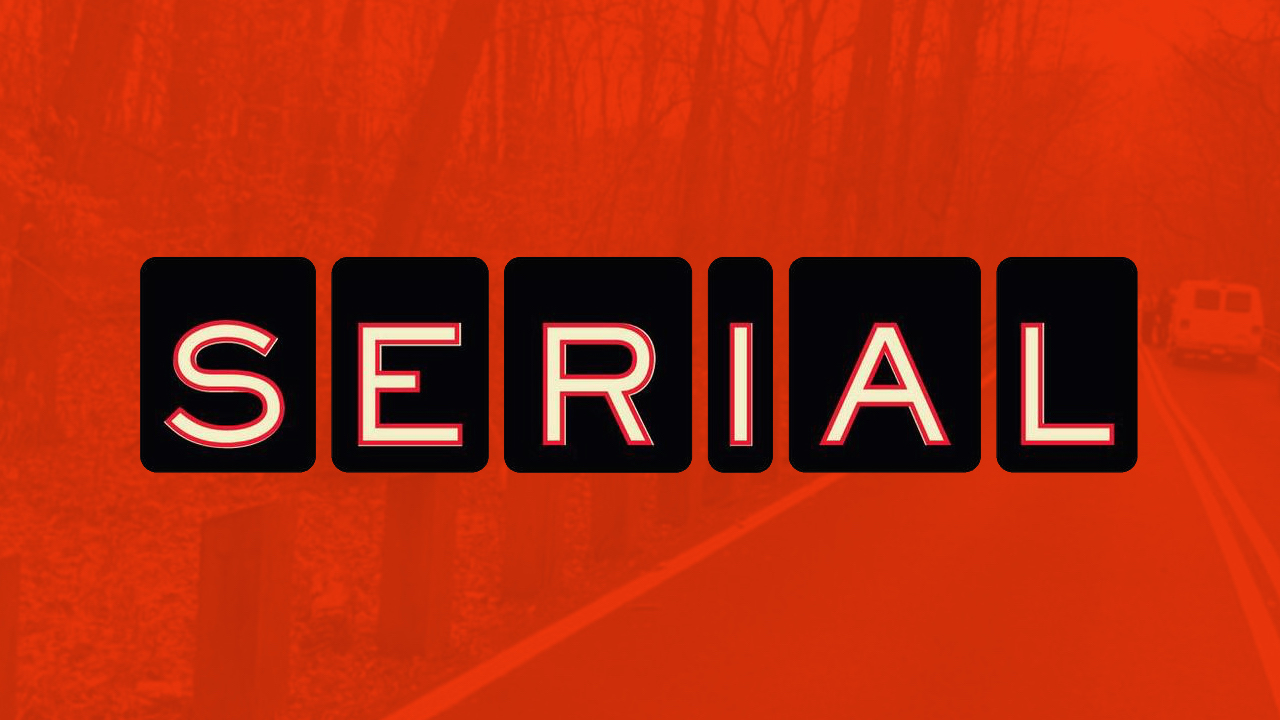
There are very big differences between the two seasons. In addition to the very viral phenomenon that it was, Season 1 drew me in because I used to work near and have shopped at the Best Buy which is central to the crime. And no, I have no idea whether or not there was ever a pay phone in the lobby. All the detail and reporting is good but the issue is very narrow, did Adnan kill his ex-girlfriend or not. While there are lots of side issues including racial profiling and cultural assimilation, the core story is a simple whodunit.
Season 2 is a much broader story and carries with it a lot of context. I am learning much more in this season. About our war in Afghanistan, about the structure of the army, about the broader geopolitical issues. What I won’t learn is whether Bowe Bergdahl is guilty or not because that is a much more subjective issue.
I always tell people the core question of Season 1 is “How did Jay know where the car was?” The core question for Season 2, if there is one, is “Was Bergdahl sane and should he ever have been in the army?” That is a far more nuanced and subjective answer.
I really don’t mind the changing schedule of Serial because there was such a long gap between Season 1 and 2 it never became part of my weekly listening habit. I am much more likely to just notice a new episode in my feed than I am to anticipate one.
It’s not like how every Monday morning I hit refresh on iTunes to make sure I have the new OTI episode because I know there will always be one. So stop subtweeting other bigger podcasts just because they can’t maintain your lofty and dedicated pace.
You totally put a finger on what I’m enjoying about Season 2- learning details about the war in Afghanistan. I was familiar with the general arc of the conflict, but the details about how it all played out in practice are really fascinating.
You’re right, we will stop subtweeting larger podcasts and will transition to opening up full-scale beefs with them.
I’m more than happy to send a shot over the bow.
https://twitter.com/yellojkt/status/704677767275810816
SHOTS FIRED.
I really hope this results in someone from Serial coming on OTI.
Check it out Ryan Sheely. Do your ideas overlap?
https://www.youtube.com/watch?v=uEe5xL4G3Y8
https://www.youtube.com/watch?v=xT0yRXWo6UU
Thanks for explaining so thoroughly what made/makes Serial so interesting. I don’t know about you but for me the show set a new bar for how reporters should deal with the objectivity problem, and this made watching Making a Murderer such a disappointment for me. I was constantly wondering: where is Laura Ricciardi? When and how did she get involved? What was filmed when? Series like these are grounded in a new reality where there’s a *lot* of footage already made and the journalist is (in an arts analogy) more of a curator of material than an original artist.
I’m not sure there really is a difference with ‘traditional reporting’. Journalists may write in a detached style but their work is often fueled by anger and indignation (see also: Spotlight).
I went to a presentation by Koenig and Snyder a few weeks ago and basically it sounded like they were so freaked by their popularity happening (and the ensuing Reddit detectives tracking down everyone in the story) that they probably wanted to damp it down. Only focus on someone who’s been heard of already. Have a guy who never actually talks to the interview subject. No real mystery beyond “how mentally ill is he?” I can get why they did that for themselves personally, but it sure brought down everyone’s enjoyment factor. I’d like to hope they’ll turn this around for season 3, but I dunno.
Argh. I meant “focus on a guy who Sarah never actually interviews herself” there. Ugh, brain farts.